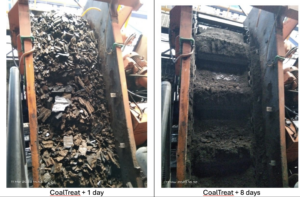It’s that time of year again. At the end of each year I am forced to revisit predictions I made a year ago in my “Speaking of Power” editorial and accept your kudos for my stellar soothsaying or blame shift when my guesswork falls short.
You may recall I “earned” a B+ for my educated guesses on my admittedly generous self-evaluation scale in 2010 and 2011. In the spirit of editorial transparency, I will now grade and you can second-guess my 2012 predictions. The results are mixed.
10. The Kyoto Protocol Dies. I predicted that the Kyoto Protocol would expire on December 31, 2012, and the chance for a new multilateral agreement is nil. Only Australia, the EU, Ukraine, and a handful of developing countries have signed on to Kyoto 2 (an intermediate treaty) to date, accounting for around 15% of global greenhouse gas emissions. Kyoto remains as dead as a doornail, earning me an easy A.
9. Fracking Regulations Increase. I predicted that the Environmental Protection Agency (EPA) would add new rules that would slow the use of natural gas fracking. As you can read in this month’s “Slow Growth Ahead—with Unexpected Flares of Activity,” the EPA has trodden over state laws to add another regulatory layer of unnecessary gas fracking rules. The EPA’s predictable regulatory actions earn me another easy A.
8. Coal Combustion Residuals Rule Delayed, Again. The EPA’s proposed coal ash rule has been delayed many times, and I predicted a year ago that making a final determination “is politically intemperate before the November election [and] the EPA will kick the decision into 2013.” Today’s best guess is that the rule will be made public mid-2013. Another A for this editor.
7. Cooling Water Intake Structure Rule Goes Live. This rule, affecting the cooling water systems of 670 power plants, effectively would eliminate the use of once-through cooling for any new plant additions and require current users to make modifications to existing systems. The rule was expected to be finalized mid-year, but unexpectedly the EPA asked for and received a one-year extension from U.S. District Court for the Southern District of New York, effectively pushing the rule release post-election. Clearly, the EPA’s lawyers didn’t want me to get another A at its expense, so I’ll be thankful for a D, a passing grade.
6. Grid Reliability Trumps EPA Air Quality Rules. The North American Electric Reliability Corp. (NERC) believes the EPA’s rules will impact grid reliability, and the EPA disagrees. I predicted that the Federal Energy Regulatory Commission (FERC) would step in to referee the disagreement. Well, FERC did get involved, but narrowly defined its role as a mere advisor to the EPA “on requests for extra time for electric generators to comply” with new rules. In essence, FERC rolled over and ceded control of the power grid to the EPA, leaving NERC hanging in the wind. I was right that FERC would get involved, but I expected the commission to actively engage in dialog with the industry. The Washington pecking order has been made clear. I’ll call that a C.
5. 1603 Treasury Grant Program Will Not Be Renewed. I predicted that Congress would not renew a program that that writes a check for 30% of the cost of a project up front and has cost taxpayers $10 billion. Solar and wind proponents lobbied hard, but few in Congress were listening. I give myself an A.
4. More Companies with DOE Loan Guarantees Will Fail. On the heels of the $500 million loss incurred by taxpayers when Solyndra failed, I predicted that many more bankruptcies would soon follow, and they did. (See the table in "Slow Growth Ahead—with Unexpected Flares of Activity" for a list of bankruptcies.) I also stuck my neck out predicting that DOE Secretary Steven Chu would leave the administration before the election. The word is Chu will return to his research lab early in the new year. I’ll weight-average these predictions to reach a grade of C+.
3. Production Tax Credits Will Not Be Renewed. Developers are racing to complete a record number of projects before December 31, 2012, when the production tax credit (PTC) expires. As of early December, the PTC was DOA, and I expect that it will remain so. I’ll take a tentative A, because the year isn’t quite over as I write this.
2. MACT Rules Will Be Delayed and Rewritten. The proposed utility mercury rule was released in April 2010 and subsequently made final in February 2012. I predicted that the rule would be rewritten, and the portions related to measurements and new sources were revised. The new rule is expected to be promulgated in March 2013, but the changes only impact new sources, says the EPA. The rules did not change for existing plants, so I was only partially correct. I’ll be generous and give myself a C.
1. GHG Lawsuits Prevail. A three-judge panel of the U.S. Court of Appeals for the D.C. Circuit ruled on June 26 that the EPA has the authority under the Clean Air Act to regulate carbon dioxide emissions. I wrongly predicted that the plaintiff lawsuit would prevail, although a trip to the Supreme Court seems assured. I’ll take an incomplete and carry this one over next year.
Overall, the grades average out to a strong B, with one incomplete, a bit lower than the B+ earned the past two years. I have also prepared my 2013 predictions in this month’s “Speaking of Power” and I’m determined to improve my grades this year. Your comments are always appreciated. You can send them to editor@powermag.com or post them in the comments section below.
—Dr. Robert Peltier, PE is POWER’s editor-in-chief.







